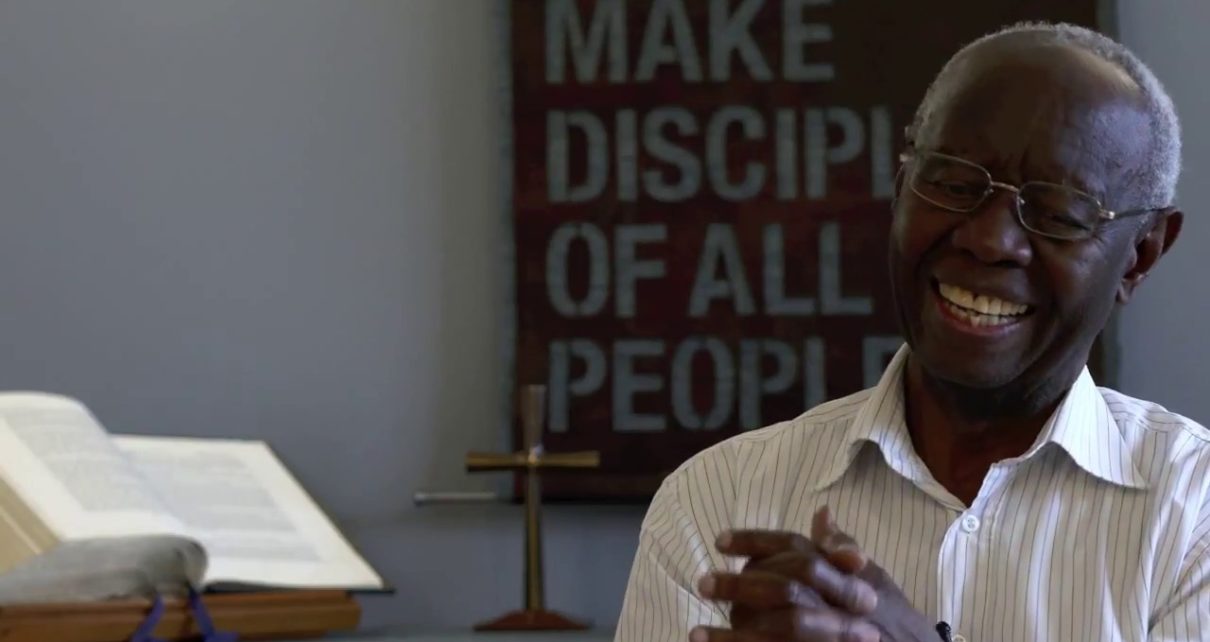Mbiti slaved to challenge the missionary mindset which perceived Traditional African Religion as demonic and anti-Christian
By Undercover Reporter
He was Kenya’s foremost theological scholar on African religion. John S Mbiti, who coined the famous phrase ‘I am because we are and because we are, therefore I am” died in Switzerland, his home away from home for over 40 years.
Fluent in Greek, Prof Mbiti, 88, was an ordain priest, an academic colossus who rode to immortality with African Religions and philosophy, his Magnum Opus of 1969 which emphasized that the history of a people, their religious outlook on life, is also the history of their religion and religious which called for understanding them from a historical, anthropological and theological perspectives.
Considering that colonialism in Africa came couched in bible verses, at first, then Prof Mbiti gradually became the international authority on the spread of Christian theology and its interplay with traditional African religions some of which had beliefs that could be mistaken for being in the realm of taboo, magic and superstition.
Prof Mbiti, thus, outlined the four areas in which outsiders were to understand African theology, its evolution and place in the lives of people who before the coming of the Whiteman worshipped their God in hills, mountains, caves, forests and waterfalls.
Prof Mbiti picked the Bible and Biblical Theology as the most important cornerstone of African Christianity since “it was the basis of any theological reflection” but that “biblical theology will have to reflect the African situation and understanding of it to be an original contribution to the theology of the Church Universal.”
The Catholic Church dispensed with Greek for English, Kiswahili and vernacular languages
Prof Mbiti was right. The Catholic Church dispensed with Greek for English, Kiswahili and vernacular languages besides allowing the use of African instruments like the kayamba, African dances and arrangement in church music.”
The second area was Christian Theology from the major traditions in Christendom, namely its” ecumenical and apostolic heritage” blended with “Catholicity of the Church” and fed into the African milieu in which it operated.
The third area was African Religions and Philosophy: the African was not to be a carbon copy of white missionary, but rather, accommodating African religious beliefs-which were flexible- and could fit well to have Christian character in an African setting.
Finally, Mbiti singled out the Theology of the Living Church as the fourth area in which the church had to change in line with changing African mores. This includes creating room for independent churches and religious movements which allowed the church o be see in its full scope: “in areas of conflict, tension, and revolution; industrial centres, in the slums, in the villages, in schools and hospitals, in refugee work; ministering to the poor and the rich in cities and in towns, engaged in radio and television work.”
Mbiti also thought that the Living Church had to be “looking both inward and outward, being rejected, opposed, even persecuted; but as the church, loving, forgiving, reconciling, worshiping, and living.”
Mbiti slaved in extensive field work for his religious philosophies from whose premise he challenged missionary mindset which perceived Traditional African Religion and religious beliefs as being demonic and anti-Christian.
To cement his place as a religious scholar of note, young Mbiti studied at Makerere University in Uganda, the USA and finally the University of Cambridge where he earned his PhD in 1963, the year Kenya attained her independence with the government of founding President Mzee Jomo Kenyatta outlining its three major challenges as ignorance, poverty and disease.
Uhuru Kenyatta who was two years old when Mbiti was clearing his doctorate
Over 50 years later, those three are still challenging the government of President Uhuru Kenyatta, who was two years old when Prof Mbiti was clearing his doctorate. In between growing up and taking over in the footsteps of his father and becoming Kenya’s fourth President, many churches have mushroomed away from the few dominant mainstream ones which existed in Kenya when Mbiti was laying the foundation of becoming a religious philosopher.
Today, the mainstream churches are still there, but facing serious competition from prosperity gospel churches which promise their followers financial freedom here on earth, not the curse of fire and brimstone which was how the clergy attracted and retained adherents when Mbiti was teaching religion and philosophy at Makerere University in 10 years to 1974.
In Kenya, he will always be remembered as the scholar who translated the bible from Greek to his native Kamba language, wrote poetry and assorted books including Introduction to African Religion, Concepts of God in Africa and The Prayers of African Religion.
Mbiti provided insights into the complexities of the African religious experience
In rooting Christianity in African settings, Mbiti did not seek to ‘indigenize the church,’ since he argued that “the Gospel is God-given. The church in which it is incarnated is made up of people who are by “definition,” indigenous “where they happen to be born or live or have their roots.”
In, The Theology of John Mbiti: His Sources, Norms, and Method published in 1979, American theology scholar, John W Kinney notes that “his tutelage provided initial insights into the complexities of the African religious experience and generated a continuing interest” from someone who is “respected and appreciated in Africa as a “pioneer” in the systematic analysis of traditional African religious concepts.”
Towards this end, Kinney observed that Mbiti saw a “Trinitarian task for Christian theology in Africa to retain its African religious and cultural heritage; to give Christianity an African imprint and character; and to uphold the uniqueness and catholicity of Christianity.”
Until his death, Mbiti was Emeritus Professor at the University of Bern and parish minister in Burgdorf, Switzerland. Prof Mbiti was the husband of Verena Mbiti-Siegenthaler and father of their four children.


This is a great blog.
This is a great blog.
I love reading your site.
I love reading your site.
I noticed one of your pages have a 404 error.
Hi,
It has been sorted…
I used to be able to find good info from your content.
https://waterfallmagazine.com
Keep this going please, great job!